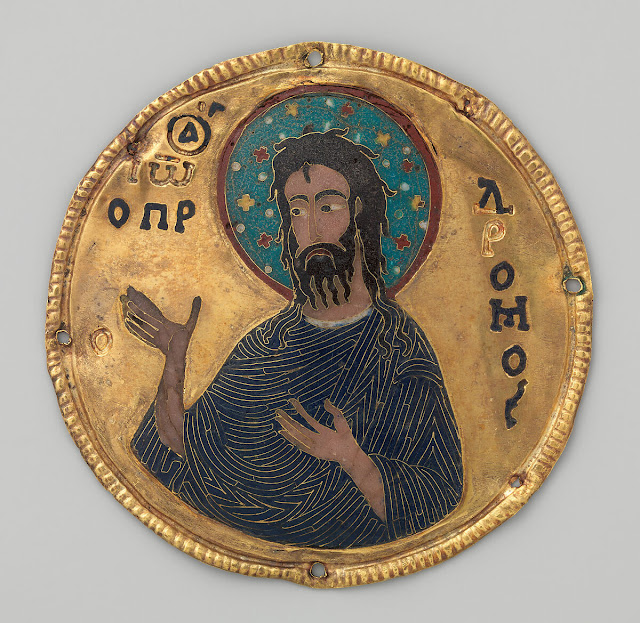In this episode, we are looking at Book 2, chapter 6-8 where
Augustine discusses the appearance of John the Baptist in all four Gospels, explains
the mention of two Herods (Herod the Great King of the Jews and his son Herod
tetrarch of Galilee) in the Gospels, and Matthew’s mention of Archelaus.
2.6: On the position given to the preaching of John the
Baptist in all the four evangelists.
Augustine calls attention to the fact that all four Gospels describe
the ministry of John the Baptist. For Matthew and Luke, John’s public preaching
ministry begins after their respective birth narratives. Mark does not have the
birth narrative but starts in 1:1, “The beginning of the gospel of Jesus Christ,
the Son of God,” and then proceeds to John’s ministry. Luke makes mention of
the political setting (Luke 3:1-2) before describing John’s ministry. John also
appears early in the prologue to the Fourth Gospel: “There was a man sent from
God, whose name was John” (John 1:6). The four Gospel accounts of John
the Baptist, according to Augustine, “are not at variance with one another.” The
differences in detail among the four Gospels do not demand the same detailed
analysis as required with the genealogies. He encourages his readers to apply the
same methodology he used to harmonize apparent differences in the genealogies
to other such passages in the Gospels.
2.7: Of the two Herods.
Augustine here draws a distinction between Herod the Great,
under whose reign Christ was born, and his son Herod the tetrarch of Galilee in
the event someone might be confused about the mention of Herod’s death in
Matthew 2:15, 19 (Herod the Great) and the mention of Herod the tetrarch ruling
in Galilee in Luke 3:1. His response indicates that this was apparently an area
where some critics of the Gospels had claimed a contradiction.
2.8: An explanation of the statement made by Matthew, to the
effect that Joseph was afraid to go with the infant Christ into Jerusalem on
account of Archelaus, yet was not afraid to go into Galilee, where Herod, that prince’s
brother, was tetrarch.
Augustine here anticipates another point at which the Gospel
readers might encounter confusion. Matthew 2:22 says that Joseph was fearful to
go to Judea when he heard Archelaus ruled there, but then he went to Galilee
where Herod ruled. Augustine explains, however, that Galilee was not ruled by
Archelaus but by Herod the tetrarch. He notes a time difference between when
Archelaus ruled (and was replaced by Pontius Pilate) and the time when the
family of Jesus settled in Nazareth.
Conclusion:
Augustine offers
a harmonious and unified account of John the Baptist across all four Gospels. He
is attentive to any perceived misunderstandings that might arise as to the mention
of historical figures like the two Herods and Archelaus. We also see again in
this section some textual differences between Augustine’s Old Latin text and
the traditional Greek text of the New Testament. For example, when citing Mark
1:2 Augustine reads, “As it is written in the prophet Isaiah”; whereas, the
traditional text reads, “As it is written in the prophets.”
JTR

No comments:
Post a Comment